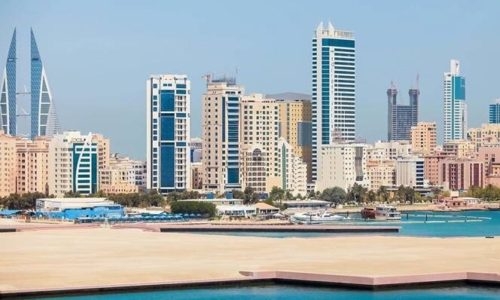Global Gender Gap Index: Bahrain tops Gulf in economic participation
TDT | Manama
The Daily Tribune – www.newsofbahrain.com
Bahrain has been ranked first in the Gulf and second in the Arab world when it comes to economic participation and creating opportunities on the latest World Economic Forum report.
The annual report, which measures the gender gap in 156 countries, produces a new qualitative achievement for the kingdom, which moved from third to second place at the Gulf level in terms of Total Value Index.
Globally, Bahrain ranks 137 with a score of 0.632 on the table, which has Iceland with a score of 0.892 on top. Above Bahrain from the Gulf on the list is the United Arab Emirates at 72nd rank.
Following Bahrain are Qatar (142), Kuwait (143), Oman (145) and Saudi Arabia (147). The report, which monitors gender disparity in four areas - education, health, economic opportunities and political empowerment - affirmed that Bahrain managed further achievements in these areas.
Bahrain bridged 63.2% of the gender gap, compared to the global average of 68%. Besides, the education gap closed at a rate of 98.5%, which exceeded the global average of 95%. In the health sector, Bahrain mended the gap by 96%, on par with the Global average.
Economic participation
The results reflect the advanced level achieved by Bahrain in various fields at the Gulf level. For instance, in economic participation and opportunities, Bahrain is first at the Gulf level, followed by the United Arab Emirates and Qatar.
Besides, Bahrain ranks second in the Arab world after Jordan.
Secondary education
Bahrain also maintained its advanced level in education by ranking first in the world in the indicators of net enrolment in secondary education and total enrolment in higher education.
As for health and life, Bahrain moved up two ranks globally, thanks to the rise in the life expectancy index.
The report attributes Bahrain’s progress to the sustainability of work to bridge the gender gap in the wage index for similar jobs to 76.7%, compared to 74.3% a year ago. Consequently, Bahrain jumped up in this index from 21st place to 16 internationally.
Besides, the value of labour force participation increased to 53.2% in the 2021 report.
Commenting, Secretary-General of the Supreme Council for Women (SCW), Hala Al Ansari, said the findings confirm the relevance of national policies for gender balance in various fields.
Timing matters
The report confirms the “commitment of the state’s institutions to constitutional principles and boosting citizens’ ability by including them in various development areas.” Al Ansari pointed out that the importance of the results stems, in particular, from the timing of their issuance and the period they focus.
“While the report shows a clear regress in the performance of most countries because of the pandemic which had affected women mostly in terms of economic participation, the report highlights the importance of the measures taken by Bahrain to confront the pandemic and curb its fallout,” Al Ansari stressed.
She added: “Those measures have contributed to maintaining the levels of performance and gains, including the advanced presence of Bahraini women in the fields of economy, work, education, health…etc.” The SCW Secretary-General further affirmed the importance of adopting recovery policies that give more role to gender balance while designing plans to address the economic crisis.
She emphasised the need to develop solutions and initiatives that would increase women participation in the labour market.
Related Posts

